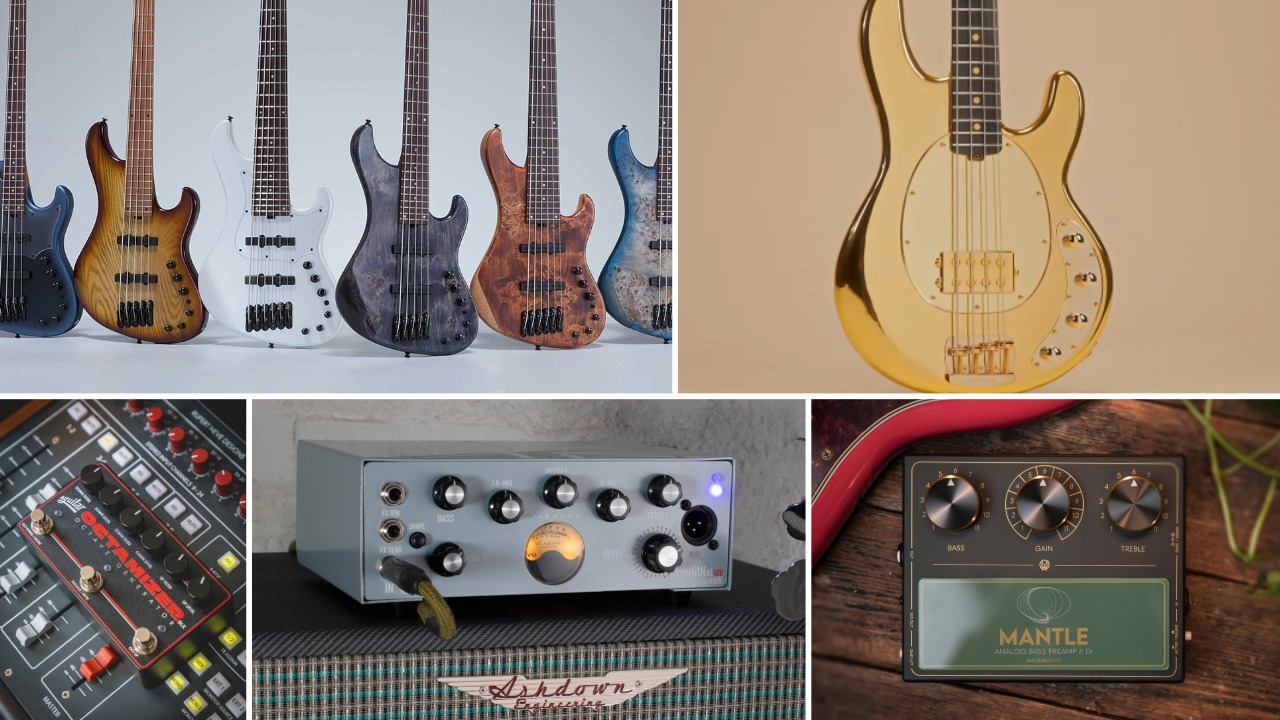Best bass strings 2025: Get the best tone, feel and lifespan from your bass guitar with these recommended string sets
Our expert pick of strings to bring the low-end thunder from Ernie Ball, D’Addario, Rotosound and more
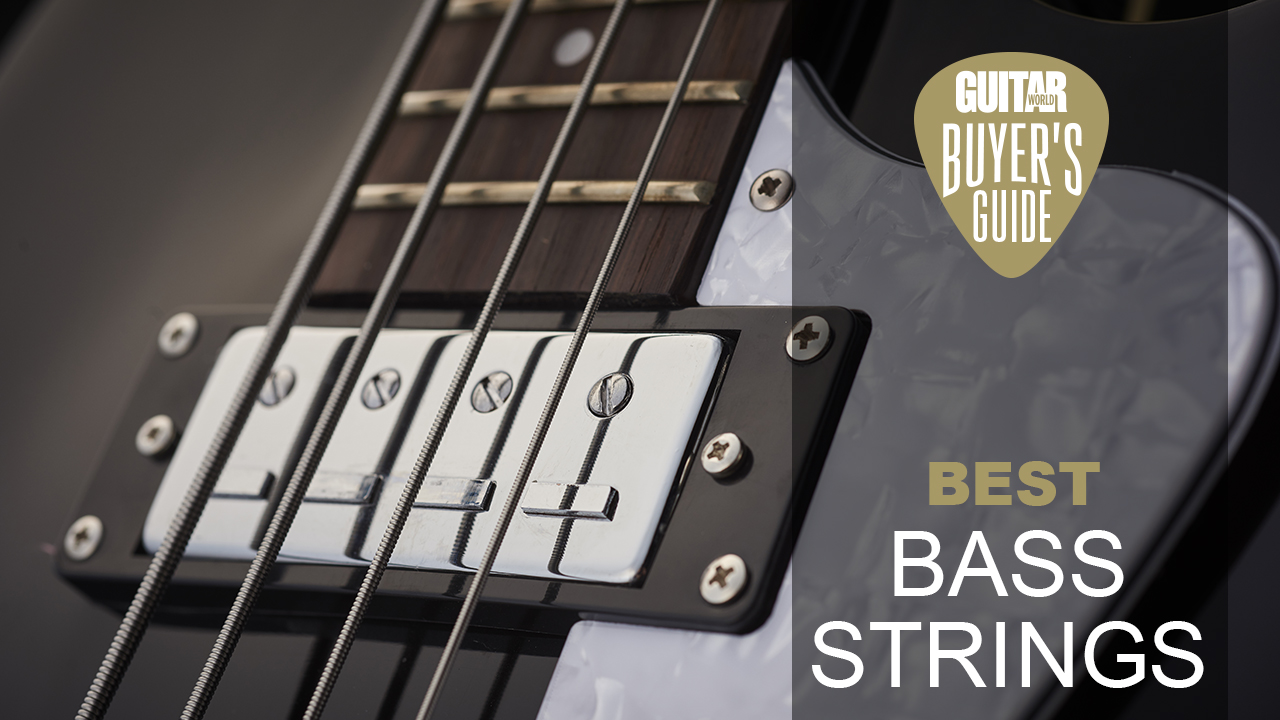
When it comes to finding a fresh set of strings for your bass guitar, you’ve got options, and lots of them, which can make it hard to know exactly what to go for. In this guide to the best bass strings, I’m going to help you zero in on the right set or sets for you.
As bassists, we often have to invest a bit more in a new set of strings compared to our guitar-playing counterparts, so selecting the right bass strings for your needs becomes increasingly important, ensuring you make the most of your time and money.
Luckily, I’ve been helping fellow bassists select the best bass strings for them while working in the guitar industry for the last 10 years. From metalheads looking for heavy gauges to jazz aficionados with a hankering for flatwounds, and the unbothered acoustic bass player doing a coffee shop gig at the behest of their band’s singer, I’ve seen it all.
There are bass strings for all occasions, playing styles, and types of bass. What’s right for you and your instrument comes down to taste and what you need from your strings.
If you’re after the best overall, the D’Addario NYXL Bass Strings are hard to look past. They last an incredibly long time, are versatile enough for everything from rock to slap, and come in a variety of gauges. For something less expensive, the Ernie Ball Slinkys are a popular choice. Like their guitar counterparts, you can find them anywhere, and they’re like a safe, familiar friend.
If you'd like more information, I've also included a FAQ section covering questions I've been asked working in the industry, and I've also written a glossary highlighting all the key terms.
On the lookout for bass guitar gear savings this Black Friday? Shop our handpicked selection of the best Black Friday guitar deals.
Quick links
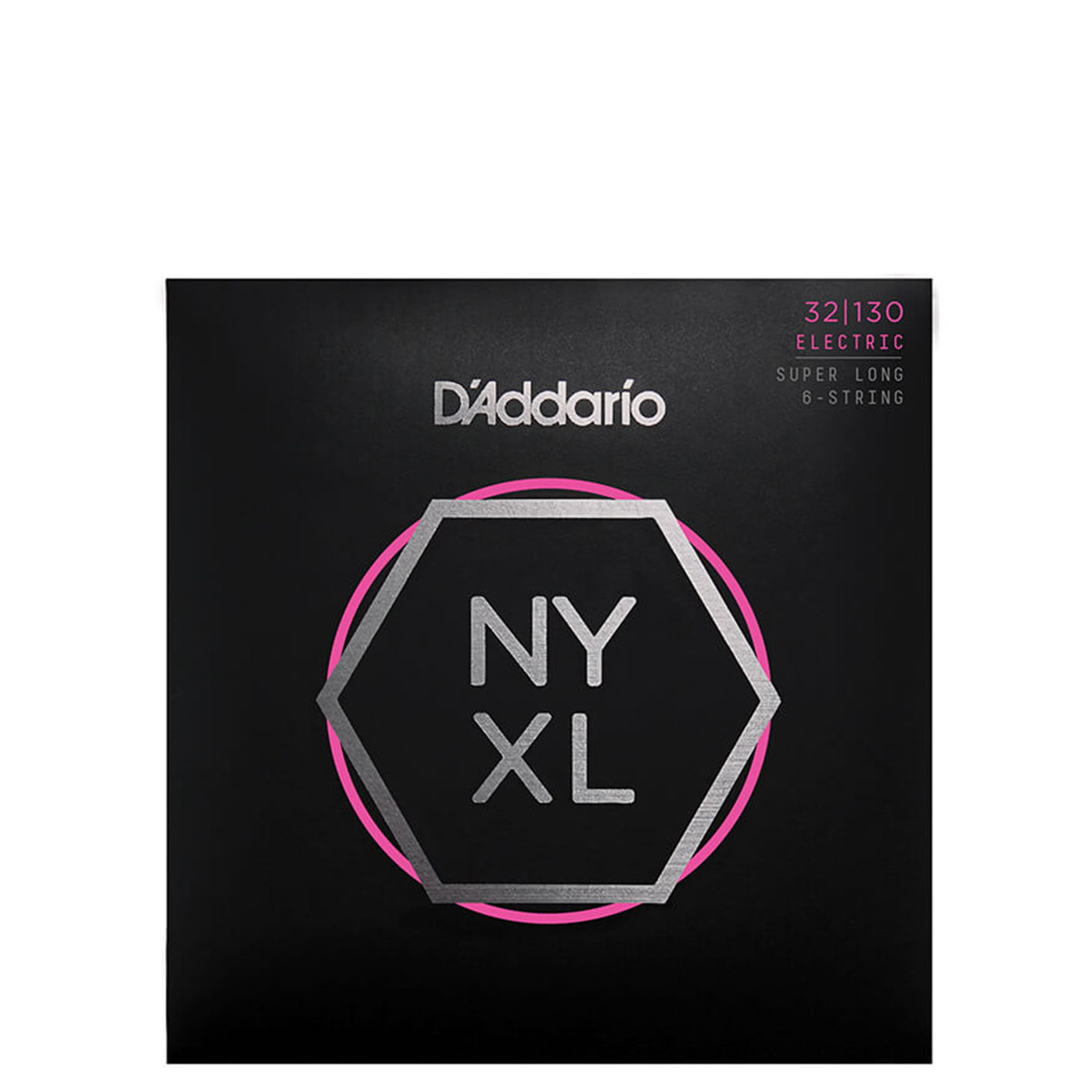
The D'Addario NYXL are my top pick thanks to their sheer versatility. No matter what your preferred play style, these bass strings are an excellent pick-up. The high-carbon steel strings provide well-balanced audio and they're available in a wide variety of gauges.
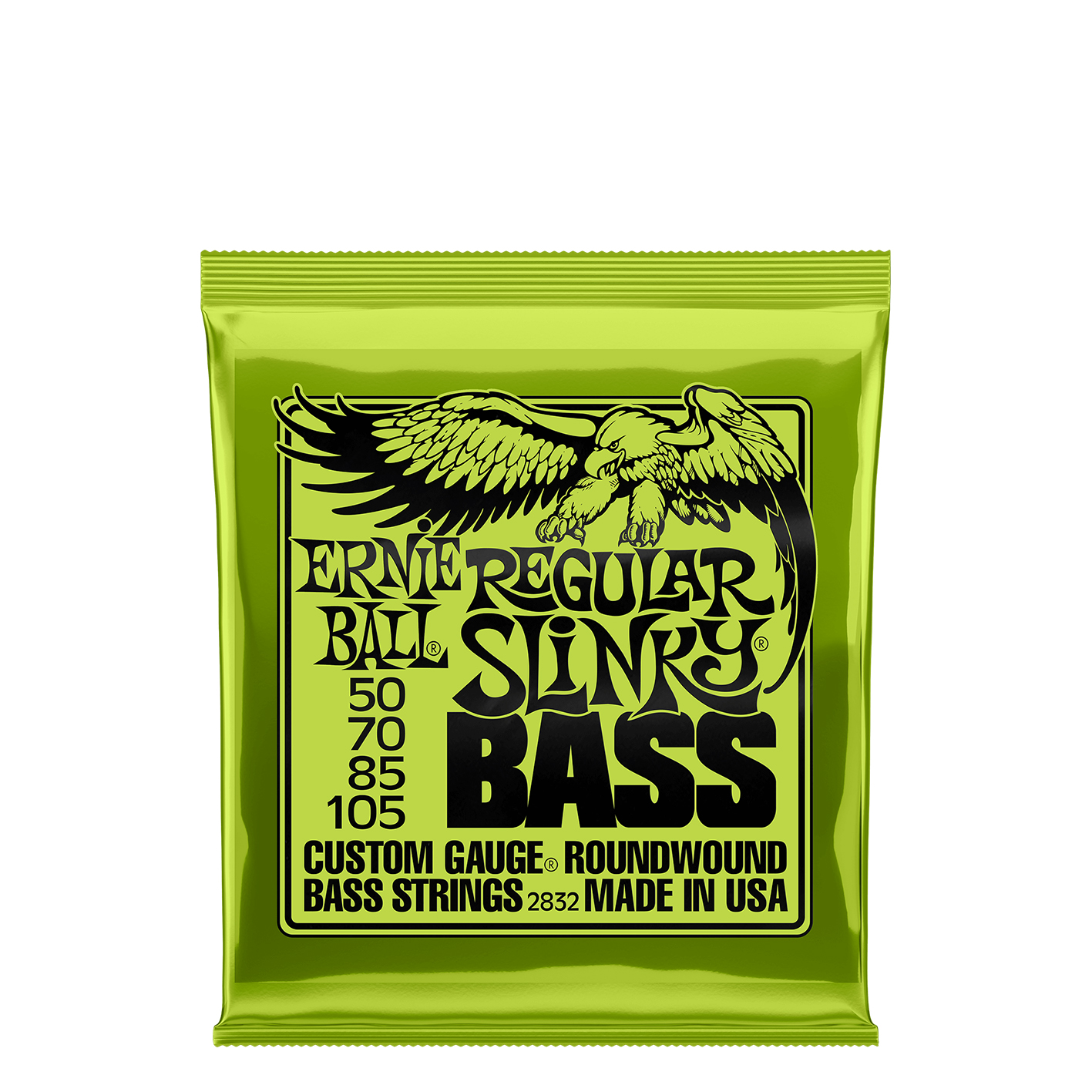
If you're just starting out with your bass and don't want to spend too much, these nickel-plated strings from Ernie Ball are a great place to start. They provide bright tones and will have you covered if your style is rock, metal or pop. An excellent place to start.
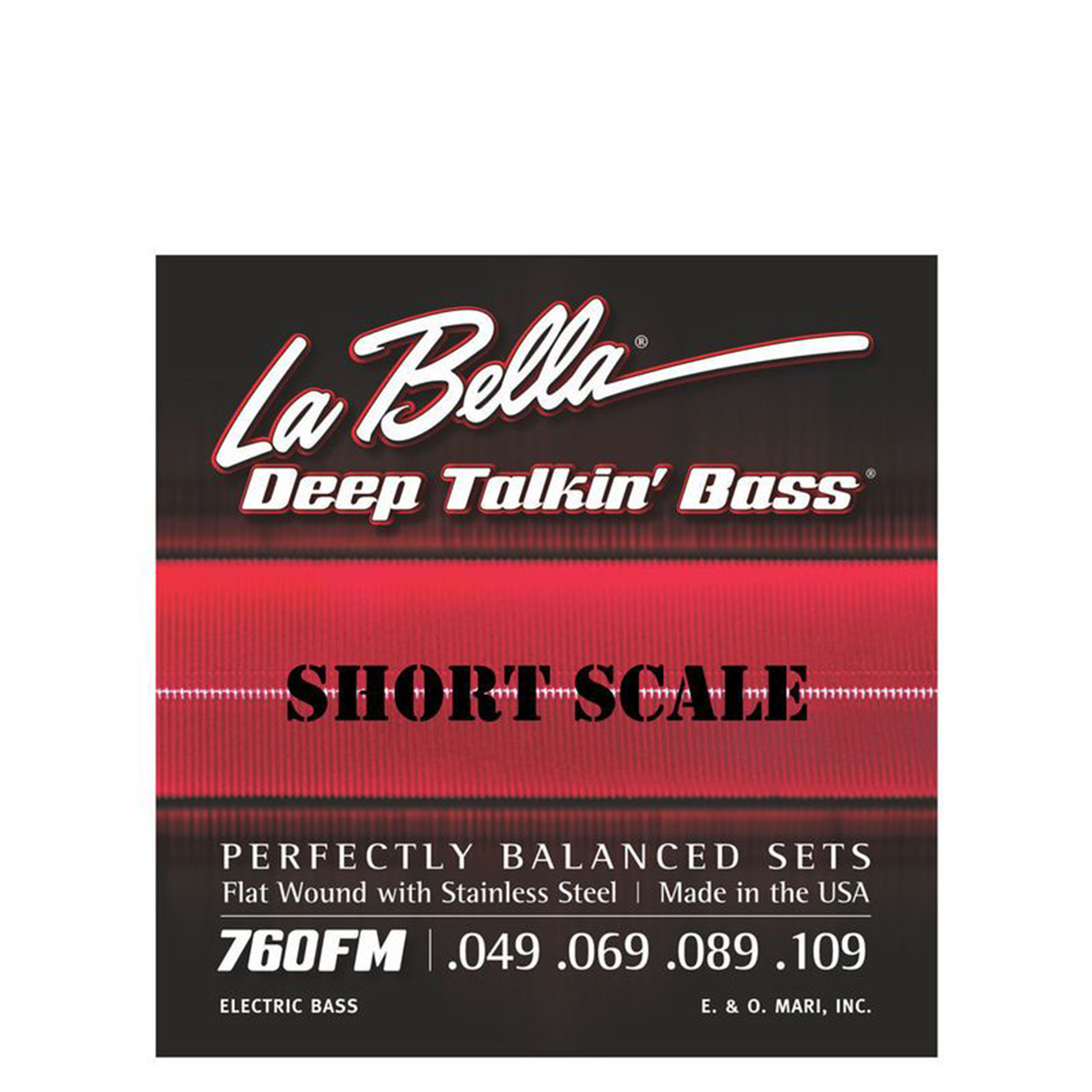
La Bella's 760FS are a great set of flatwound bass strings that are not only easy to play, but they're kind to your frets and fretboard - and they're also top option for fretless players. Age also improves their rounded tone... up to a point.
Best overall
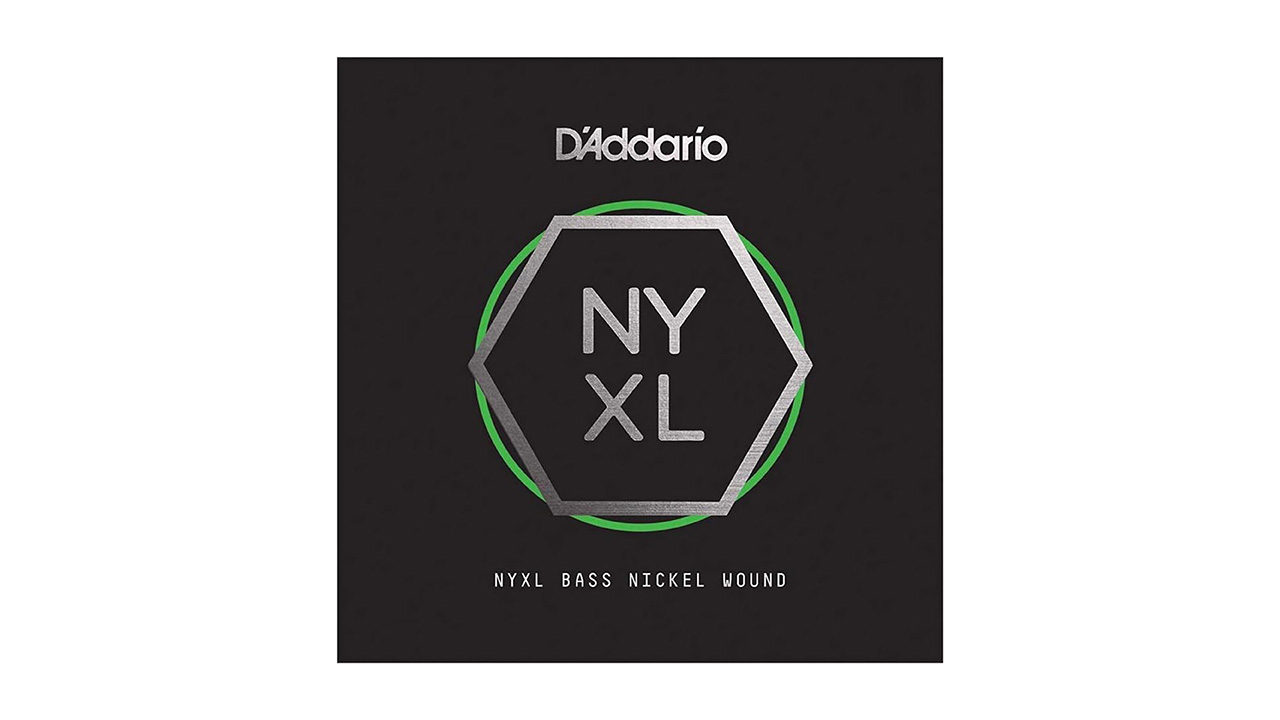
1. D’Addario NYXL
Our expert review:
Specifications
Reasons to buy
Reasons to avoid
The NYXL strings’ USP is the high-carbon steel from which they take their name. D’Addario cooks this stuff up at their New York factory and fashions it into a super-tough hexagonal core before applying a roundwound nickel wrap. These are the second brightest strings D’Addario produces, and yet they are well-balanced, with a musical warmth and harmonic richness.
They’ll handle all kinds of styles, with a bass and treble response that’ll suit contemporary slap and percussive styles, but enough midrange to ingratiate them to those seeking more old-school flavors of thunder.
D’Addario offers the NYXL sets in a wide variety of gauges, and various hybrid gauges in between that offer a light top, heavy medium configurations. There are five- and six-string sets available, too.
Best budget
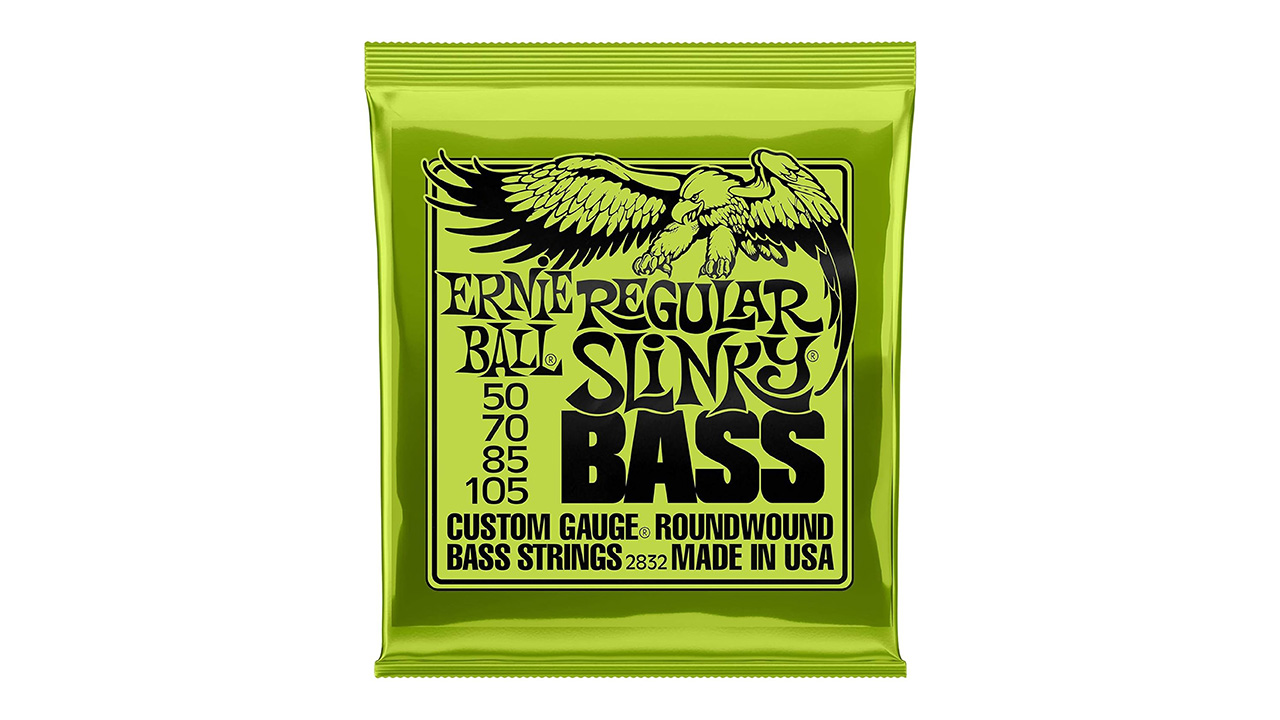
2. Ernie Ball 2832 Regular Slinky Nickel Wound
Our expert review:
Specifications
Reasons to buy
Reasons to avoid
The ubiquitous Slinkys are never a bad idea, and with a quality steel core and nickel-plated roundwound wrap, they deliver a bright, effervescent tone that makes them a no-brainer for contemporary styles.
Rock bassists would love them, as would metal bass players, and with that amount of articulation and treble, the Slinkys work well for bouncy slap ’n’ pop basslines.
They also represent quite excellent value, are available in a wide variety of gauges, and are available everywhere. Sure, if you have aspirations of being the next James Jamerson, these might be a little on the bright side, but otherwise you cannot go wrong.
Best flatwound
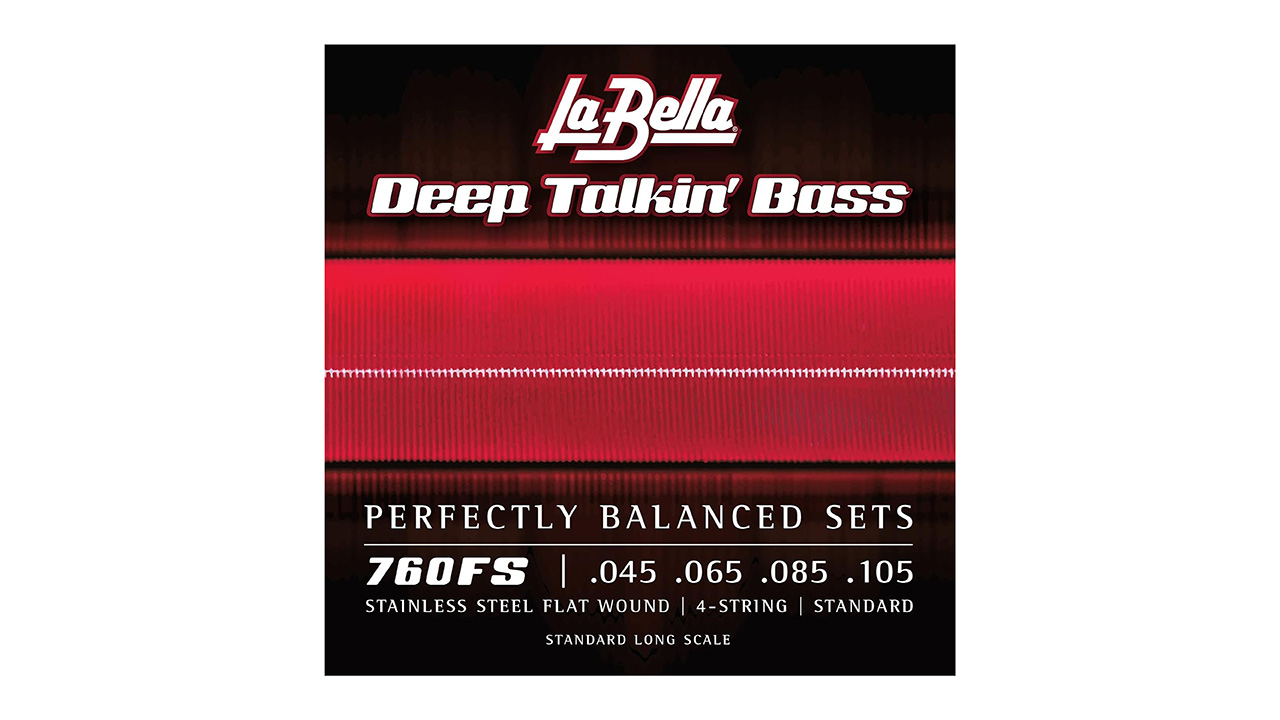
3. La Bella 760FS Deep Talkin' Bass
Our expert review:
Specifications
Reasons to buy
Reasons to avoid
La Bella’s Deep Talkin’ flatwounds have that classic flatwound feel – easy on the finger, easy on your frets, easy on your fretboard. And there’s a lovely roundedness to their tone profile that allows those E and A strings to bloom nicely.
A little experimentation with your technique and EQ, juicing the bass, a little string deadening, and you might find yourself spirited away to Studio A, tracking with Marvin and co.
But seriously, they feel so good for fingerstyle, and make a very fretboard-friendly option for fretless bass players. Just make sure you get the right set for your bass; La Bella sells through-body and through-bridge sets. The “FS-TB” sets are for through-body basses.
Best of British
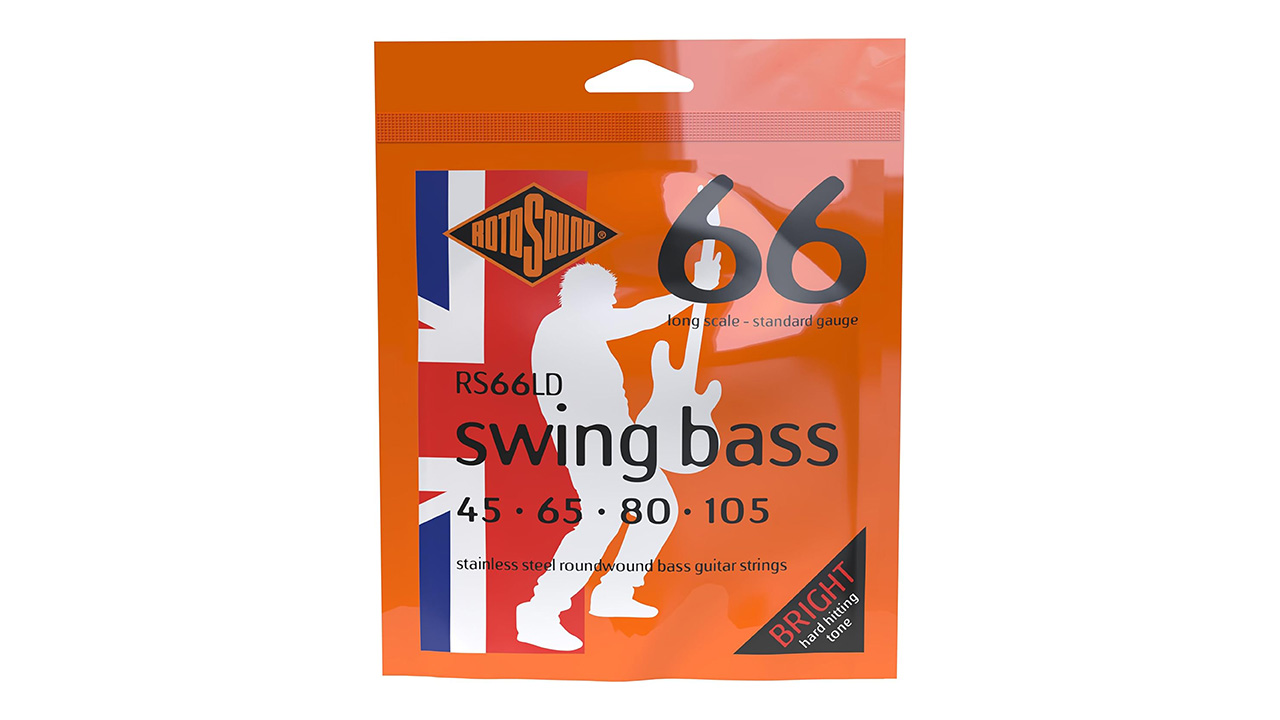
4. Rotosound RS66LD
Our expert review:
Specifications
Reasons to buy
Reasons to avoid
Launched in 1962 and used by the likes of Geddy Lee, Roger Waters, Duff McKagan, John Entwistle and… well, you get the idea, the quality of Swing Bass 66 sets is not to be sniffed at.
How these British classics are put together is very much a trade secret. There are no line drawings of the process, no pulling back of the curtain, but you’ll know a well-made nickel-plated steel string when you play it. The balance will be there, with deep lows, detailed highs, and there should be a little warmth too.
However, at 20 bucks or less, they offer excellent value, and come in a variety of gauges, with plenty of options for short and long scale basses. Five and six string basses are also catered for.
Best for slap bass
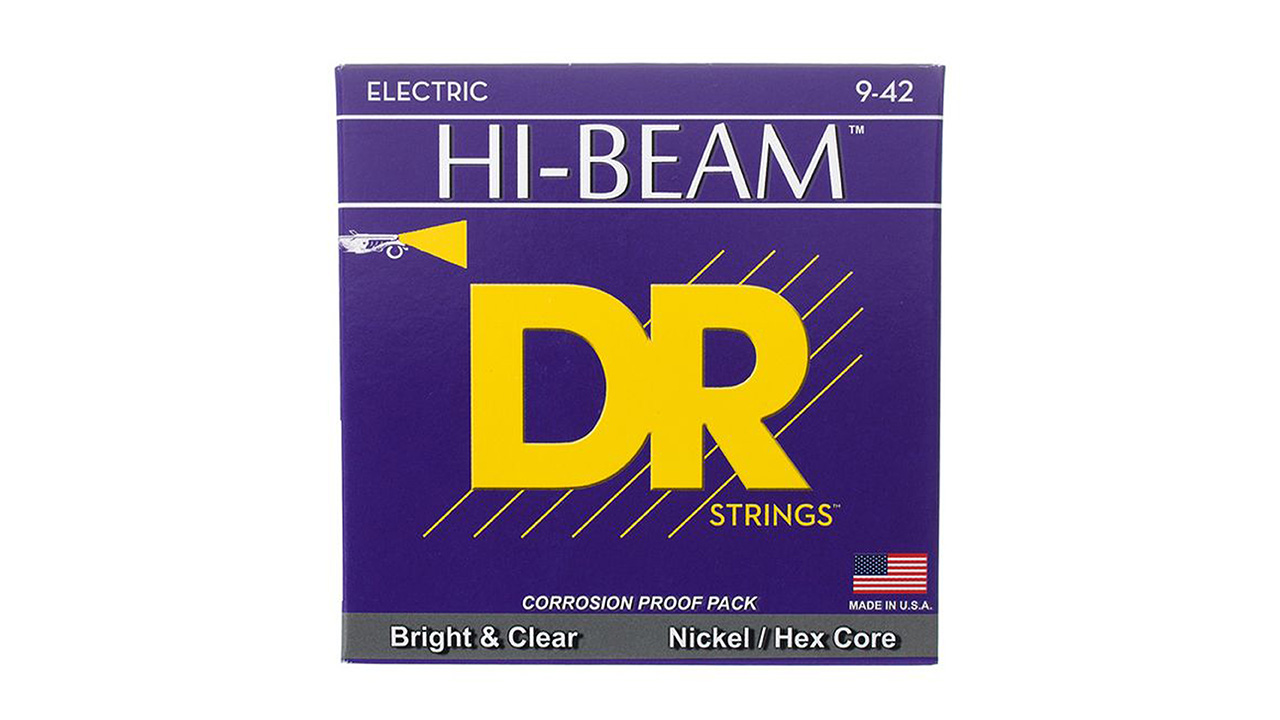
5. DR Strings Hi-Beam
Our expert review:
Specifications
Reasons to buy
Reasons to avoid
The Hi-Beams have got a very agreeable feel, good and malleable, and that’s in no small part down to their round steel core. The brightness from that stainless-steel wrap makes them one of the best options for percussive bass styles.
Disciples of Mark King would do well to seek out the lightest set they can, boost their bass and treble accordingly, and press that thumb into service. Marcus Miller is a big fan.
DR Strings engineers these tension using its Tite Fit/Compression-Winding tech, so there is a lot more mass of metal than the finished string – so what starts out as a .108 gauge E string ends up as .105 once when it’s ready. Very clever.
Best vintage
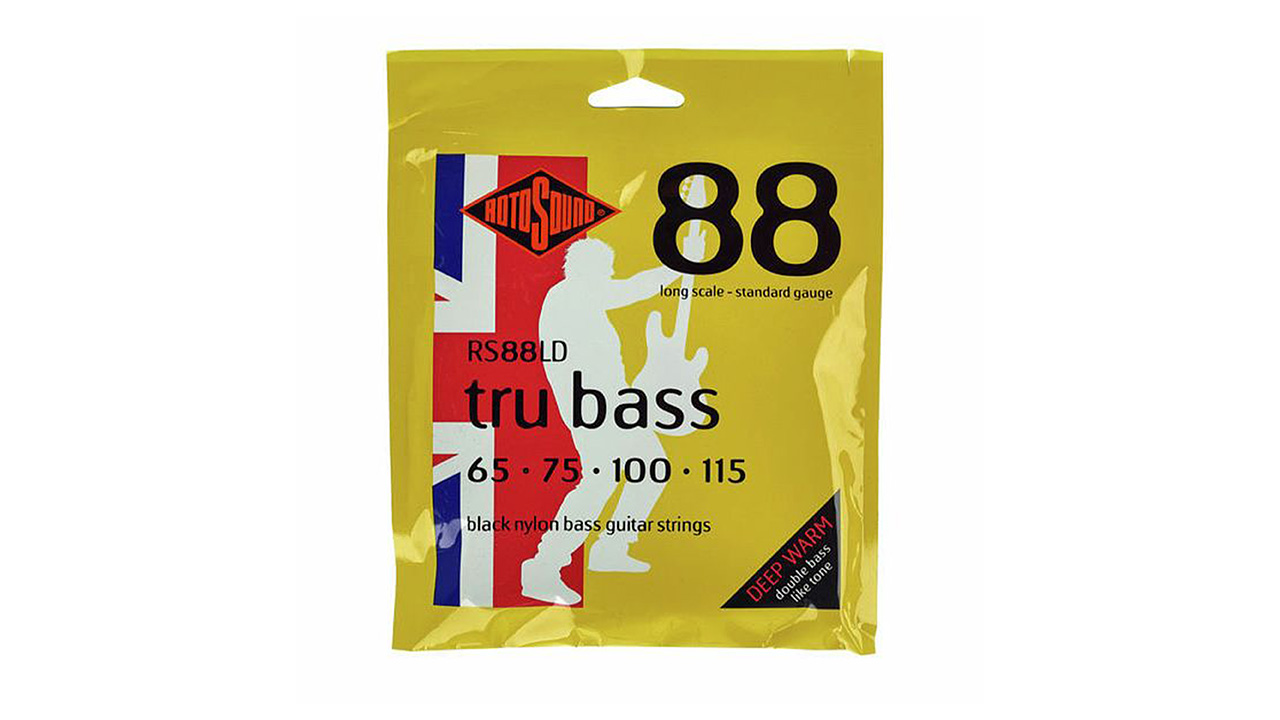
6. Rotosound Tru Bass 88
Our expert review:
Specifications
Reasons to buy
Reasons to avoid
These tapewound strings are totally old-school, and if you are looking for that mellow, bass-heavy thunk there is nothing better. Tapewounds always feel kind to the fingers and they are ideal for fretless players who don’t want to chew the rosewood to kindling.
I would co-sign Rotosound’s description of the Tru Bass 88’s tone profile as deep and warm, but maybe it’s best to direct you to recordings such as Abbey Road and Transformer – two recordings from the pop-cultural pantheon to feature them.
Depending on your setup, you can chase upright bass tones with these, and that, in this digitized age, is a beautiful prospect.
Best all-round
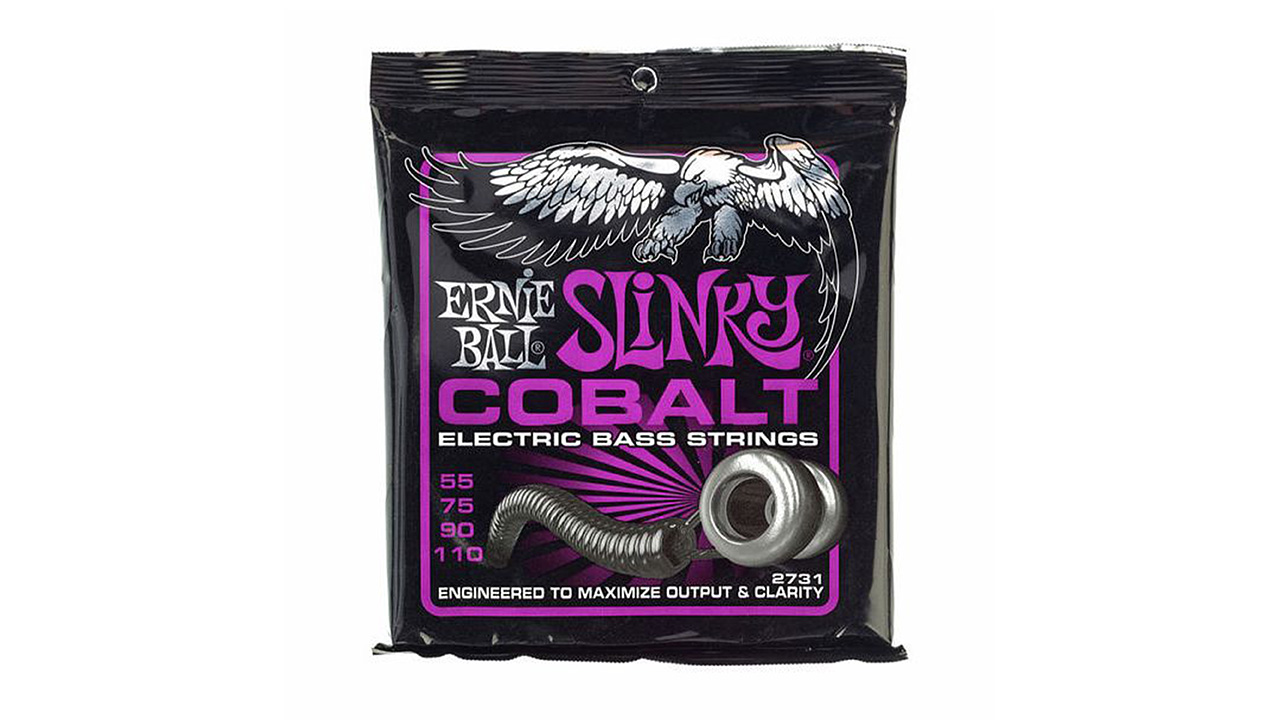
7. Ernie Ball 2731 Power Slinky Cobalt
Our expert review:
Specifications
Reasons to buy
Reasons to avoid
And now for something completely different, the Power Slinky Cobalts. Well, not completely different, but with the iron/cobalt alloy wrap offering more magnetism for your pickups to react to, the Cobalts are engineered to give you more output.
Tone-wise, this serves up a menu of deeper lows and brighter highs, and a midrange that has a little more discipline. And, of course, with a soupçon more output, they’ll really help you cement the low end in the mix.
This should appeal to a wide range of players, especially those playing modern styles. Rock and metal players should like these. But then, that tone profile and softer feel on the fingers makes these a decent bet for percussive styles.
Most durable
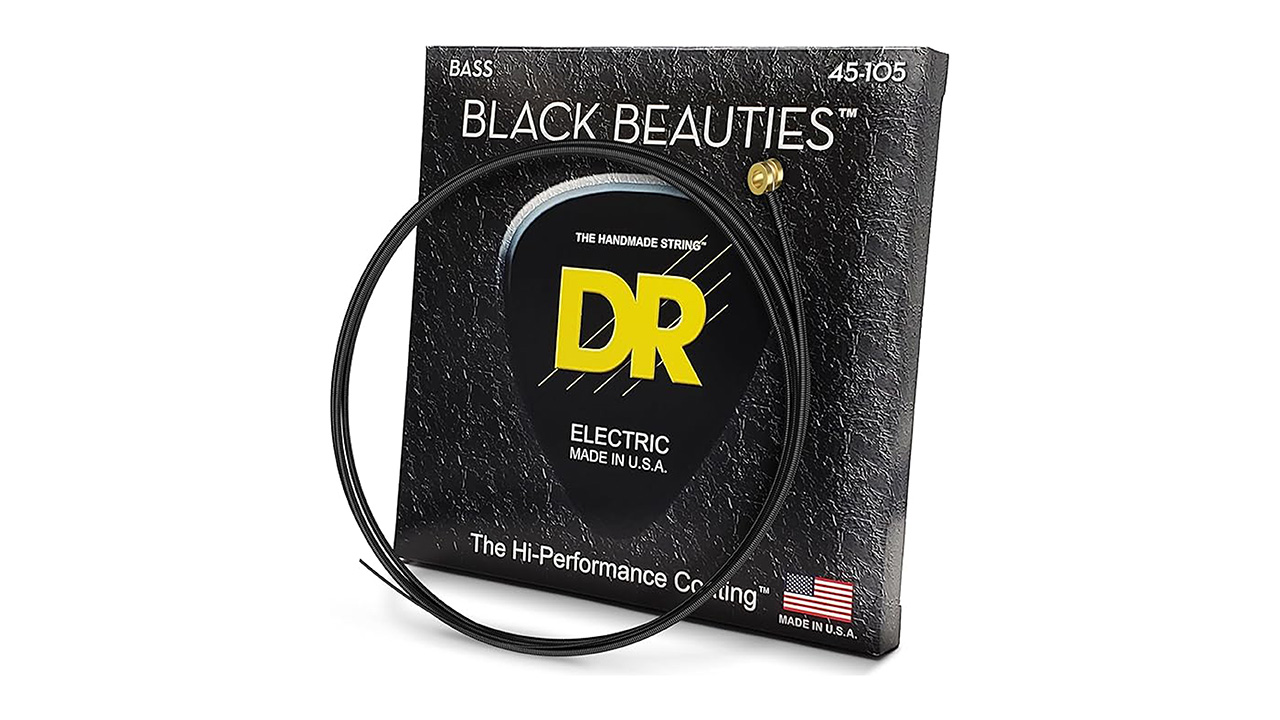
8. DR Strings BKB-45 Black Beauties
Our expert review:
Specifications
Reasons to buy
Reasons to avoid
The Black Beauties are coated in black polymer to extend the life of the strings, maintaining their just-out-the-pack freshness for longer. The coating is DR Strings’ K3 coating, which was rolled out in 2010 with the promise that it wouldn’t tame any of the string’s frequency response, and nor would the coating flake.
We players can get a little superstitious with coated strings, with even the suggestion that there’s something between your finger or pick and the string being enough to play tricks with our mind, but these strings are excellent, with a healthy amount of upper-mids and trebly sparkle complementing a loud low end.
Indeed, for coated strings, these have exceptional brightness, a musical liveliness that will work well for modern styles.
Best acoustic
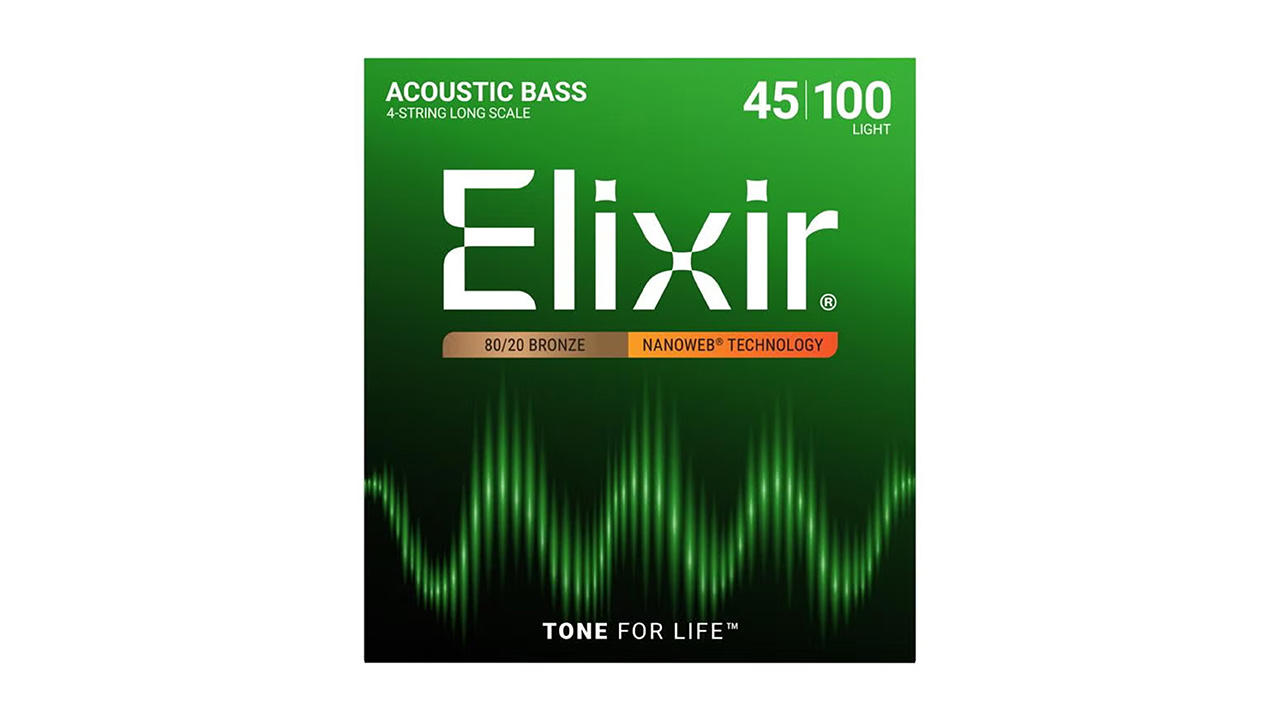
9. Elixir Nanoweb 14502 80/20 Bronze Acoustic
Our expert review:
Specifications
Reasons to buy
Reasons to avoid
The acoustic bass is a more specialist instrument but here Elixir has looked at what works on its guitar strings and implemented it on this bass. The company has coated the 80/20 bronze cores with its well-known Nanoweb coating, and let us tell you, they are very bright!
The Nanoweb coating isn’t for everyone but I love the smooth feel it produces, reducing the string squeak whilst sliding notes. The coating is also fantastic for longevity, it works a treat and will preserve your strings for multiple more months than a standard set. If you hate restringing your guitar, the Elixirs will be your best friend.
If you prefer slightly warmer acoustic bass strings, then the Elixirs won’t be up your street, however, we feel like they produce a lovely resonance without any intrusive, harsh overtones.
Best for jazz
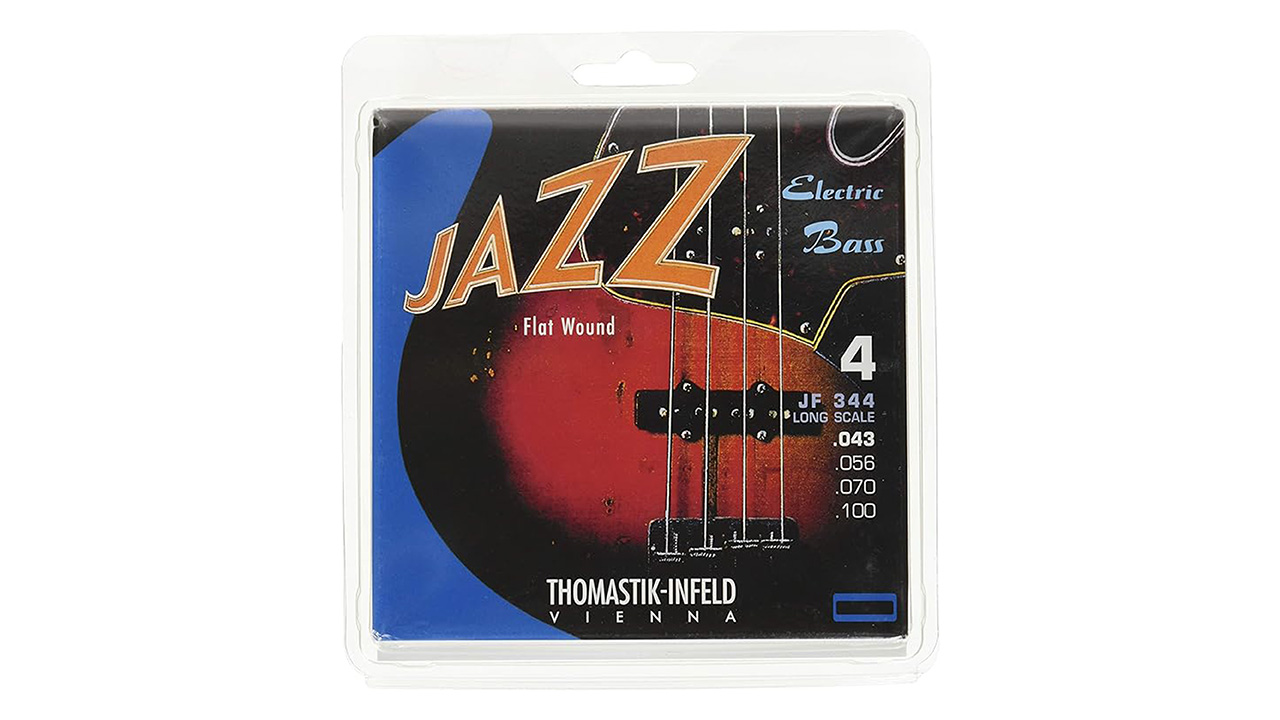
10. Thomastik-Infeld Jazz Flat Wound
Our expert review:
Specifications
Reasons to buy
Reasons to avoid
Let’s round out the list with something a little special, for those occasions when you want to go into record and you need everything, y’know, just so. Made in Austria, these Thomastik-Infeld flatwounds will give you warm, mellow bass tones, with more than a hint of the upright about them.
They are constructed from a ribbon flatwound nickel-plated steel wrap with a round steel core that’s wrapped in a silk inlay. With the round core, there’s an extra degree of flexibility and a more relaxed feel.
Allied to the flatwound’s inherent smooth profile, that round core helps make these exceptionally approachable. For this money, they should be, of course.
How to choose the best bass strings
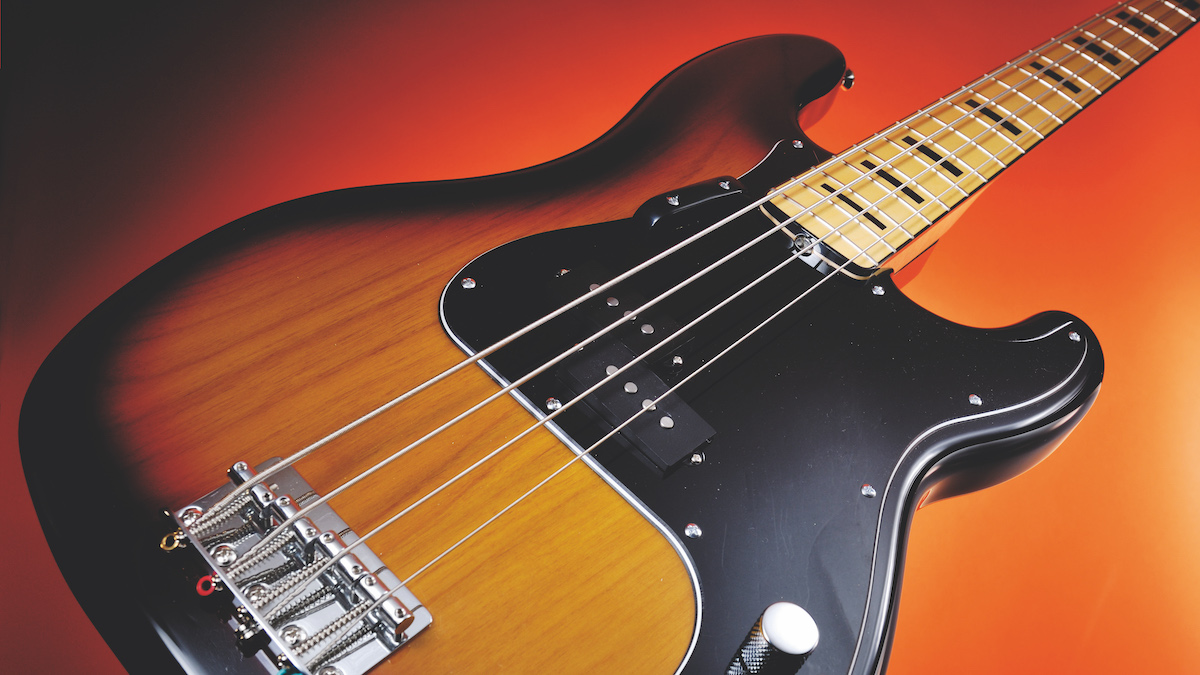
If you’re new to the bass guitar and aren’t quite sure where to start when it comes to buying new strings, this is the section for you. I’ve relied on my 20 years of playing and 10 years of helping real-life bassists and beginner bass players in my day job to find the best strings for their needs. Over that time, I’ve narrowed it down to three key steps that I recommend every bassist consider when choosing their next pack of strings.
1. Gauge
For me, the first step when choosing bass strings is to consider the gauge. String gauge refers to the thickness of a string and is measured in thousandths of an inch. The type of bass you play will help determine what gauge to go for. For example, medium or long-scale basses (34” and above) work well with .045-.105 sets, while short-scale models (around 30”) often take better to slightly heavier strings like .050-.105.
The shorter the scale length, the more tension is needed for the strings to feel normal. This isn’t a hard and fast rule, though; every player has their preferences, especially if drop tuning or styles like slap bass are involved. But if you’re just starting out, this is a good rule of thumb to follow.
2. Material
A very close second in terms of consideration is the string material. Bass strings are made up of a metal core and a winding material, and the relationship between the two has a huge impact on both your tone and how the strings feel to play.
If you prefer a brighter sound, a core made from steel, iron, or cobalt paired with a roundwound wrap will usually produce a zingy, articulate tone. On the other hand, a steel or nickel core with a flatwound or tapewound wrap will dampen the string’s response, resulting in a warmer, mellower sound. The latter options feel incredibly smooth, while roundwound strings have a slightly rougher texture due to their exposed windings.
3. Coating
Lastly, you may want to consider coated bass strings. Brands like Elixir and D’Addario produce strings with a thin polymer coating applied over the winding to help extend their lifespan. The reason for this is simple: the natural oils and acidity from your fingertips gradually corrode the metal windings, dulling your tone and forcing you to change strings sooner. A coated string adds a barrier between your fingers and the metal, helping them stay brighter for longer.
If you’re just starting out and don’t want the hassle of frequent string changes, coated strings are a great choice. They do cost a little more, but many players find the extra lifespan well worth it.
FAQ
Roundwound, flatwound or tapewound. What's better?
Starting with roundwounds, in which the alloy wrap around the steel core is exactly that, a thin filament of round wire that wraps the core. These are most common, with a stainless steel or nickel-plated steel wrap. With a stainless steel wrap, they’ll be among the brightest bass strings you can buy, with a pronounced low end and a fair degree of brightness. Introducing nickel into the mix can tame a little of the string’s brightness for a more vintage sound.
Flatwounds are constructed from a wire wrapping that is flattened, thus the string feels smooth to the touch, and these place more of a tonal emphasis on the lows and mids. Ideal for fretless basses, when you want to preserve your fretboard, they also reduce string noise and are just the ticket for ’60s-style bass tones, for Motown thump and all that.
Tapewound strings will typically have a nylon coating over them and will take that old-school tone further, giving you an electric bass tone that approximates the sound of an acoustic upright bass. They are an excellent option for more muted fingerstyle bass tones, and have been used by the likes of Paul McCartney to good effect. You will typically find these in a heavier gauge to compensate for the low tension of the string, but they will feel very easy to play.
Are coated bass strings worth it?
More generally, coated strings can add a few weeks of life to your strings. The coating used on strings protects their metallic surface from corrosion which is exacerbated due to the natural oils from your fingers and the acidity of your sweat.
However, that long-life can come at a premium, but if you crave new-string freshness it can save you money in the long run.
Some players feel the coating takes a little off the top end, as though they’d been played in for a few hours, but the counter to that is that they stay as they are out of the packet for longer.
Do bass strings affect your tone?
Yes, the bass strings you use will absolutely affect your tone. The combination of core material, winding type, and gauge has a big influence on how your instrument sounds. For example, a nickel-core, roundwound, coated string will sound very different from a steel-core, flatwound set.
Heavier gauges typically sound louder and fuller, with more low-end presence, while lighter gauges tend to be brighter and snappier. However, this isn’t a hard-and-fast rule. The relationship between string gauge, core material, and winding type will shape your tone in different ways. If you’re unsure, it’s best to experiment with a few sets to find what works for your playing style and bass.
What bass string gauge should a beginner use?
If you’re just starting out, chances are you haven’t developed a preference for string gauge yet. With that in mind, I’d suggest going for a standard medium gauge set. If you have a 34-inch scale bass, commonly found on Precision and Jazz models, a .045–.105 gauge is a solid starting point. On the other hand, shorter-scale basses around 30 inches, like the Fender Mustang or Gibson EB-3, tend to work better with slightly heavier strings, such as .050–.110.
The reason scale length is an important factor comes down to physics: shorter scales need more tension to reach the same pitch, as the string travels a shorter distance between the nut and bridge. It might seem counterintuitive at first, but trust me, science checks out on this one.
How often should I change my bass strings?
How often you change your bass strings will vary from player to player. Unlike guitar strings, bass strings don’t corrode as quickly – largely due to their thickness – but they will still wear over time, especially if you play regularly or gig often. When your strings start to darken in color and lose their brightness, that’s usually a sign it’s time for a new set.
Some bassists actually prefer the duller, thuddier tone that comes from older strings, in which case you won’t need to change them as often. However, if you like that bright, fresh, and zingy sound of new strings, swap them out once they start to lose clarity. It’s also worth noting that heavily corroded strings can cause extra fret wear, so keeping them fresh will help your bass last longer.
What strings are best for slap?
Generally speaking, the best strings for slap bass come down to personal preference. The strings that sound and feel best to you will always be the right choice. That said, from my experience working in a guitar store, most slap bassists tend to prefer roundwound strings over flatwounds or tapewounds. Their brighter tone and sharper attack suit slap playing particularly well.
That’s not to say you can’t slap with flatwounds, plenty of players do, but roundwounds are typically the go-to. Like most things in music, there’s no right or wrong answer here, only what works for you.
Glossary
80/20 bronze: This is a metal alloy used as a material for bass strings. It consists of 80% copper and 20% zinc, and tonally it’s bright and punchy.
Balanced tension: In a standard pack, each string has a different thickness, resulting in varying tension levels. Balanced tension strings are designed so that each string feels consistent, with equal resistance across the set.
Coated strings: A type of string that has a polymer coating around the winding. This coating protects against corrosion and extends the life of the strings.
Flatwound: A flatwound string has a flattened wrap wire, making it feel incredibly smooth. Tonally, they’re much more mellow and produce virtually no finger noise when playing.
Gauge: This refers to the thickness of a bass string, typically measured in inches.
Hybrid gauge: A hybrid gauge of bass strings combines string thicknesses found in different standard sets, offering a mix of light and heavy gauges.
Roundwound: Unlike a flatwound, a roundwound has a rounded wire wrapping around the core. Tonally, they’re brighter and produce more finger noise, or “squeak,” due to their textured surface.
Scale length: This is the measurement taken from the nut to the saddle on a bass guitar.
Short-scale: Traditionally, a short-scale bass has a scale length of 30 inches or under. The Fender Mustang and Gibson EB-3 are famous examples.
Long-scale: A long-scale bass typically has a scale length of 34 inches or longer. The Fender Precision and Jazz Bass are classic examples.
String squeak: This refers to the noise made when your fingertips drag across roundwound strings. Flatwounds don’t produce string squeak due to their smooth wrap wire.
Tapewound: Unlike a flatwound, which uses a flat metal wrap, a tapewound string uses a layer of nylon tape wrapped around the core, giving a soft, vintage tone and a very smooth feel.
How we choose the best bass strings for this guide
Here at Guitar World, we are experts in our field, with many years of playing and product testing between us. We live and breathe everything guitar related, and we draw on this knowledge and experience of using products in live, recording and rehearsal scenarios when selecting the products for our guides.
When choosing what we believe to be the best bass strings available right now, we combine our hands-on experience, user reviews and testimonies and engage in lengthy discussions with our editorial colleagues to reach a consensus about the top products in any given category.
First and foremost, we are guitarists, and we want other players to find the right product for them. So we take into careful consideration everything from budget to feature set, ease of use and durability to come up with a list of what we can safely say are the best bass strings on the market right now.
Read more about our rating system, how we choose the gear we feature, and exactly how we test each product.
Why trust us?
☑️ A global audience of 3.8 million guitarists monthly
☑️ 1,200+ reviews on GuitarWorld.com
☑️ 30+ years of product testing at Guitar World
Guitar World boasts over 44 years of expertise and stands as the ultimate authority on all things related to guitars. The magazine and website feature expertly written gear round-ups and top-quality, authoritative reviews penned by a team of highly experienced industry professionals.
Guitar World's inaugural print issue hit the shelves in July 1980, and ever since, it has been captivating players and enthusiasts with engaging lessons, insightful interviews with the biggest guitar heroes, and priceless buying advice for newbie players.
Furthermore, GuitarWorld.com continues this legacy online and serves as the hub of the world's foremost authorities on guitar playing. The site not only hosts content from Guitar World but also showcases articles from respected publications such as Guitarist, Total Guitar, Guitar Techniques, and Bass Player. With a reach extending to 3.8 million players each month, GuitarWorld.com is a go-to destination for guitar fanatics globally.
Meet the experts

Jonathan Horsley has been writing about guitars and bass since 2005, playing them since 1990, and regularly contributes to publications including Guitar World, MusicRadar and Total Guitar. For this guide Jonathan put a range of bass string sets through their paces.

Ross has been a music lover and guitar player since the age of 8. He has spent the five years since graduating from university working in music retail, selling guitars, amps and more. Ross is particularly interested in electric guitars, pedals and amplifiers and his current rig includes a trusty 2009 American Standard Stratocaster and Vox AC30S1 with a few Walrus Audio and Way Huge pedals in between.
Latest updates
05/11/25: The guide has been redesigned and now includes a quick links section highlighting a trio of our top picks. The FAQ section has been significantly expanded and we've also dropped in a glossary of key terms. A How To Choose section has been added to help newer bass players pick out a set of strings, while a panel explaining why you can trust the GuitarWorld team is now included. Finally, we've added a Meet The Experts section so you can get to know the authors of the guide.
Read more
You can trust Guitar World
- Best bass amps: ace amp options for bassists
- Work on your chops with the best bass amps for practice
- Best acoustic guitar strings: everything you need to know
All the latest guitar news, interviews, lessons, reviews, deals and more, direct to your inbox!
Jonathan Horsley has been writing about guitars since 2005, playing them since 1990, and regularly contributes to publications including Guitar World, MusicRadar and Total Guitar. He uses Jazz III nylon picks, 10s during the week, 9s at the weekend, and shamefully still struggles with rhythm figure one of Van Halen’s Panama.

